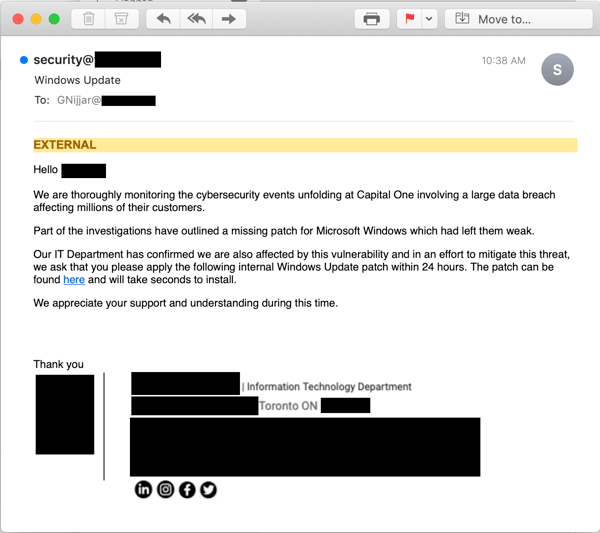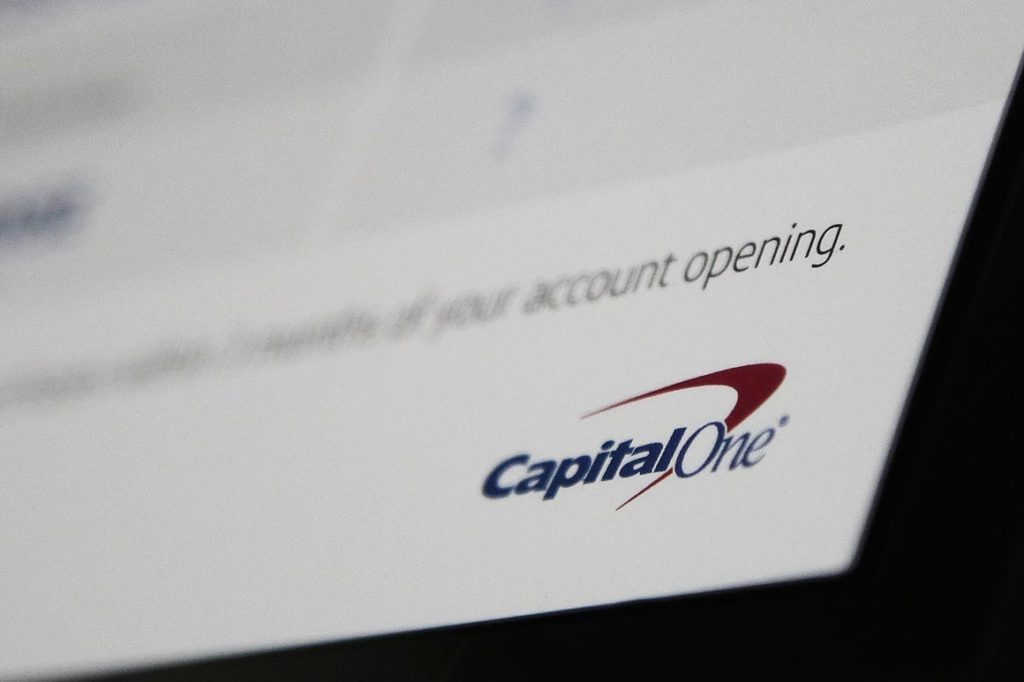The bad guys are now exploiting news of the CapitalOne breach to push a malicious backdoor trojan via a phishing email purporting to offer a Windows Security Update. See the attached example email.
Clicking the link in that email downloads a file named KB3085604.exe — obviously named to resemble Microsoft patch files and security updates. Detection of this file by the anti-malware engines represented on VirusTotal is poor, with only nine flagging it at this point.

The phishing email itself spoofs the targeted organization’s IT department, and the language used is sufficiently informal (as well as a little technical and even awkward) to appear credible.
As a result, some users just might fall for it — esp. those working in organizations that occasionally ask employees to perform routine IT tasks (e.g., applying updates, updating AV definitions, etc.).
Now is the time to warn your users and ensure that they know how to distinguish actual, legitimate email notifications sent by your IT Department or Help Desk from malicious imposters like this latest phish.
If you have any questions or concerns, please contact IT Customer Care at (718) 817-3999 or via email to: HelpIT@fordham.edu.

